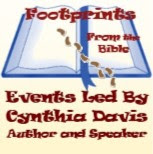After all the hope and joy of Advent and Christmas, the week after Christmas can be rather a let-down. If
follow the lectionary readings throughout the week, you will discover that it
is full of cautionary readings. We have St. Stephen, the first Christian martyr and Herod’s slaughter of the Holy Innocents to remind us that the world is not
full of the sweetness and light that we prefer to associate with Christmas. It
is also a reminder that we are called to be the light in the world as a
reflection of Jesus’ light.
If you took time to create a Rule of Life to live the Way of Love, or if you found ways to
incorporate the 7 disciplines into your existing Rule of Life, pause this week
to think about how you will carry that forward into the New Year. Studying the
image of creation from the Saint John’s Bible may be a way to find some quiet
time to consider this idea.
You will find some ideas and suggestions on the Planner page for this week. Every
January 1 the secular New Year arrives. Advent is the liturgical new year, so we
have already started our New Year planning by participating in the Way of Love Advent curriculum*.
The Planner page suggests that you do an Epiphany (or New Year's) blessing of your house with chalk.
This is an ancient custom that is not as well known in America as in Europe.
The numbers in the year (2019) frame 3 letters. The letters C, M, B
have two meanings. They are the initials of the traditional names of the three
magi: Caspar, Melchior, and Balthazar; and they represent the Latin words Christus mansionem benedicat, “May
Christ bless the house.” The final inscription, in chalk over the door, is: 20
+ C + M + B+ 19. The “+” signs represent the cross and 2019 is the year.
One service is below:
Leader: Peace be to this house, and to all who enter here.
People: Amen.
People: Amen.
One or more of the following prayers may be said:
May all who come to our home this year rejoice to find Christ living among us; and may we seek and serve, in everyone we meet, that same Jesus who is your incarnate Word, now and forever. Amen.
May all who come to our home this year rejoice to find Christ living among us; and may we seek and serve, in everyone we meet, that same Jesus who is your incarnate Word, now and forever. Amen.
God of heaven and earth, you revealed your only-begotten One
to every nation by the guidance of a star. Bless this house and all who inhabit
it. Fill us with the light of Christ, that our concern for others may reflect
your love. We ask this through Christ our Savior. Amen.
Loving God, bless this household. May we be blessed with
health, goodness of heart, gentleness, and abiding in your will. We ask this
through Christ our Savior. Amen.
As participants take
turns making the inscription, the leader says:
The three Wise Men, [C] Caspar, [M] Melchior, [B] and Balthasar followed the star to Bethlehem and the child Jesus [20] two thousand, [19] and nineteen years ago. [+ +] May Christ bless our home [+ +], and remain with us throughout the new year. Amen.
The three Wise Men, [C] Caspar, [M] Melchior, [B] and Balthasar followed the star to Bethlehem and the child Jesus [20] two thousand, [19] and nineteen years ago. [+ +] May Christ bless our home [+ +], and remain with us throughout the new year. Amen.
All say the Lord’s Prayer (you can use the traditional
version; or consider a slightly different version from Leslie Leland Fields).
Further explanation, and other prayers, for this service can
be found online.
How can you continue to live the Way of Love in 2019? On Advent 4, I posted a blank planner page as a guide you in merging
your current rule of life (prayer, exercise, study, etc.) into the Way of
Love Rule of Life. You don't have to totally recreate your Life. Remember,
a Rule of Life is simply a way to be more intentional and focused in your
loving relationship with God, yourself, and others.
However you choose to welcome the New Year and continue the Way of Love, I pray that God will bless
you and yours.
During the season of Epiphany, we'll consider the 7 individual practices of the Way of Love in more detail.
*Way of Love Advent Curriculum; By Jenifer
Gamber and Becky Zartman; Copyright © 2018 by The Episcopal Church;
The Episcopal Church/ 815 2nd
Ave/New York, NY 10017






